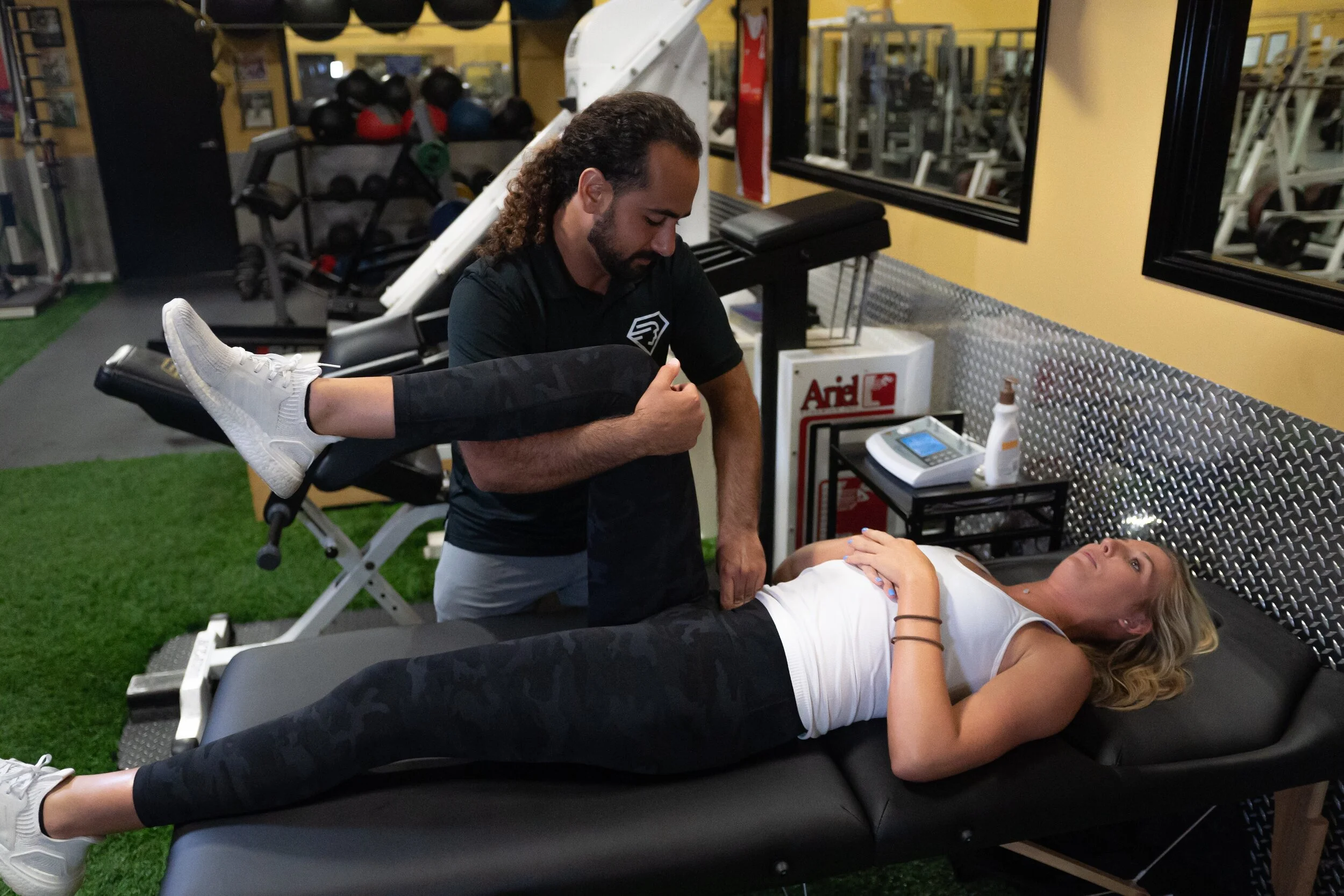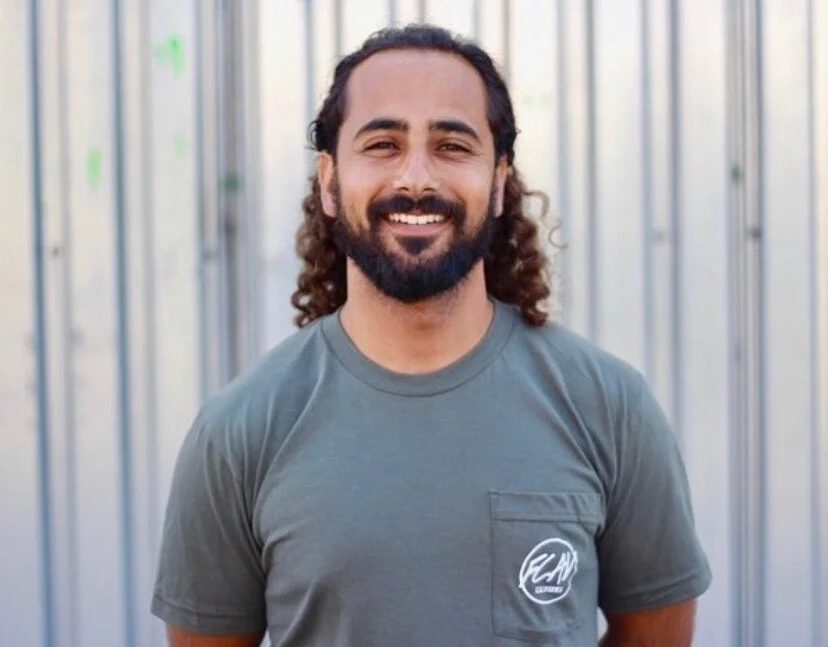Ep. 88 - Working Through Injury and Female Athlete Health with MS, ATC Kero Makramalla
Listen now: iTunes | Spotify
Kero Makramalla’s Story
Kero Makramalla is a certified athletic trainer with his masters in Athletic Training who brings his story and wisdom to the FAM! He is currently an athletic trainer and strength and conditioning coach at Fast-Twitch Sports Medicine.
Kero grew up in Long Beach, California going to Coptic Orthodox Church with his two parents who moved to the United States from Egypt and highly value their faith. While attending Vanguard for undergrad, Kero’s track and field experience was plagued by injury. Through his experiences there, his faith became his own.
Kero explains it as realizing, “This is right. This is true. This is what I want.”
Kero got baptized during his time at Vanguard and could not be more grateful for the support of his parents.
One of the biggest lessons Kero has learned is that God has the best in store for us and the bad things in our life are not coming from him, but are a result of the broken world we live in. We can bring anything to Christ with peace of mind that the final say is in his hands and be reminded that Jesus is with us through hard things and walks beside us.
The Practicals from an Athletic Trainer
What are the most common injuries for female athletes?
ACL injuries (3-6x more likely in women)
Stress fractures
Jumper's knee
Runner’s knee
Eating Disorders
Burnout
More overuse injuries due to body structure but also because women push through pain much more than men.
Lower body injuries often stem from women’s body structure which starts with women having wider hips (for child birth) which causes the femur to bow a little bit and places stress on the knees and causes the knees to cave in.
To counteract and strengthen knees, female athletes should focus on strengthening their hips external rotators (Glut med) and hamstrings.
Your hamstrings and your glutes are your primary hip extenders when you run, jump, or lift your knees up and push them back down toward the ground. So strengthening those muscles can contribute speed and overall agility.
Glute Med is on the outside of your hip/butt. Often in female athletes, their Glute Medius is underdeveloped which causes their TFL (Tensor Fasciae Latae) to overcompensate and not fire properly. This can result in your adductors, the inside of your thighs, and TFL to be constantly tight.
To combat those tense muscles and muscles not firing properly or being used to their full extent, Kero stresses the importance of stretching but more importantly foam rolling.
“Foam Roll. Foam Roll. Foam Roll.”
Be aware when doing glute med exercises that you are working your glute and not the front side of your hip.
“Turn ‘em off. Turn ‘em off. Turn ‘em off.”
If you are doing a core exercise and you know your hip muscles are overfiring, roll them out as much as possible to get them to relax before you begin.
Athletes should be doing majority non rotational core exercises to provide stability to the spine.
Some of the best athletes are able to keep their body healthy for a long time. Focusing on longevity and making sure their body is firing properly and listening to their body.
IT Band - is a tendon that stems from the TFL and moves down the leg from there.
Female Athlete Triad: Nutrients, Menstrual Cycle, Low Bone Density
Nutrients
Eating disorders play a factor, but people without eating disorders also just dont always know how much nutrients they need. Be aware of when you need a little extra nutrients, whether it’s a snack or a shake.
150/160 pound athlete
To be alive - 1600 calories
Normal living/moving - 800 calories
Practice - 350-400 calories
Weights - 200-300 calories
Total - 2900-3000 calories to just sustain body
Female athletes tend to put a higher stress on intake and restricting diets. However, Kero stresses that the way you look does not correlate to your level of athleticism. Even through injuries and not exercising as often, we need calories and nutrients to sustain our bodies for daily living.
There is a huge difference between eating healthy foods and saying “I cant eat this” for whatever reason.
Menstrual Cycle
Your menstrual cycle is regulating your hormones. Having irregular menstrual cycles or not having one at all, is throwing off the normal rhythm in your body and homeostasis. There is also the factor of energy and how that is impacted throughout the menstrual cycle. Irregular menstrual cycles can have a huge impact on athlete performance and the way your body is staying positive.
If your eating plan or your workout plan is causing your period to become irregular, then maybe we should rethink if it is actually a healthy plan.
Low Bone Density
When women reach the age 35-40, their bone density slowly starts to decrease. Make sure that as female athletes, we are getting proper nutrients and taking care of our bodies now. Estrogen is a hormone that helps with your bones' nutrient absorption.
Mental Recovery
Your feelings are valid.
Mental barriers that happen after an injury can delay rehab for weeks at times.
Apprehension
Nervousness
Denial
More than anything, recovering athletes just need someone to sit with them and understand them and their feelings.
Don’t be discouraged if things need to go slow or you need to take a step back. Recovery takes time. Stepping back isn't failing, you are going to step forward again.
“This sport isn't your identity. It isn't who you are, it's what you do. Regardless of whether you continue to do this or anything else, you are still going to be you. Your identity is in Jesus. Your gifts and talents are not going to decrease in value if you're showing them on a field or showing them in a workplace.”
Rapid Fire Questions:
What are you loving right now?
Time to dive deeper into daily rhythms. Time to sit with myself and Jesus.
What are you listening to right now?
Christmas music, country music, worship
What motivates you?
Seeing people reach their max potential - one of the coolest things in the world
What is the best advice you have ever been given?
Go for it. Failure wasn’t a word till the 14th century. It’s not failure; it’s learning.
Kero Links:
Glute Medium Program
https://www.instagram.com/tv/B_DKWheJ3-p/?igshid=f08z3v8dcotm
TFL Stretch and Rolling
Hollow Hold
Pallof Hold
Podcast Links:
Apple Link
https://podcasts.apple.com/us/podcast/the-female-athlete-mission/id1378718011?i=1000501982185
Spotify Link
https://open.spotify.com/episode/0Z9SpxESB7wTTcd1Tjhzw0?si=m9qeDDaVQaiVDA1wbw6J8w


